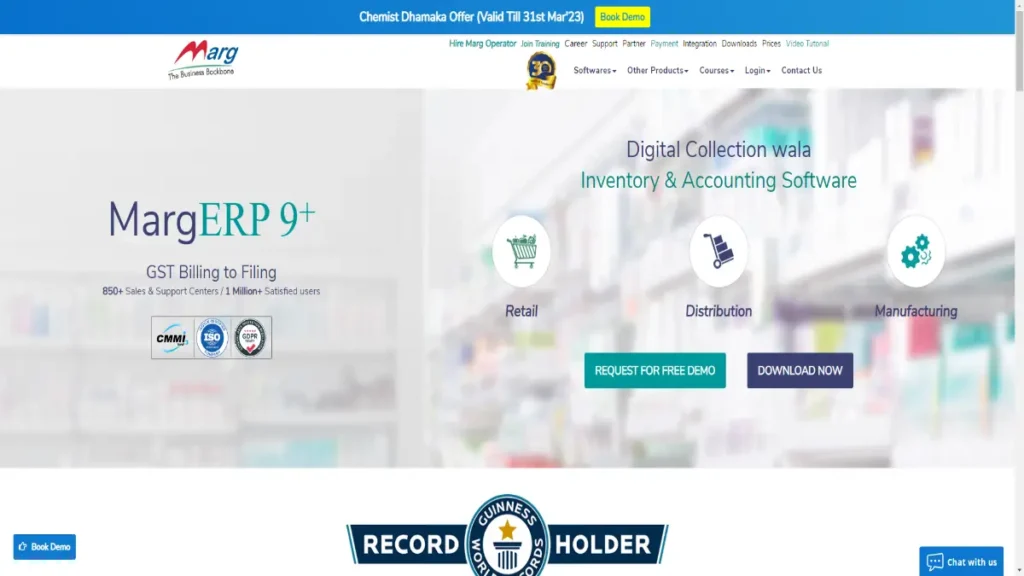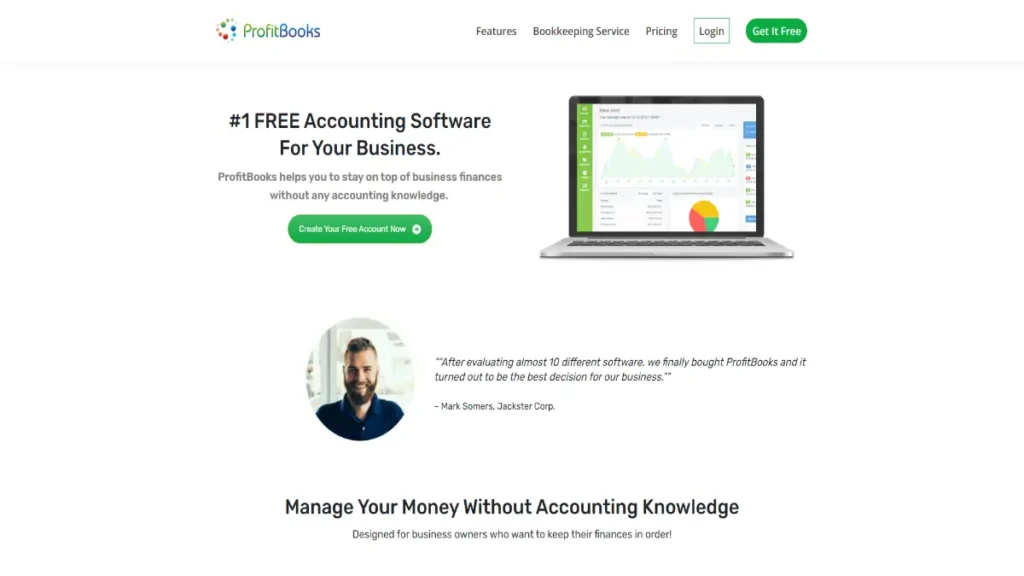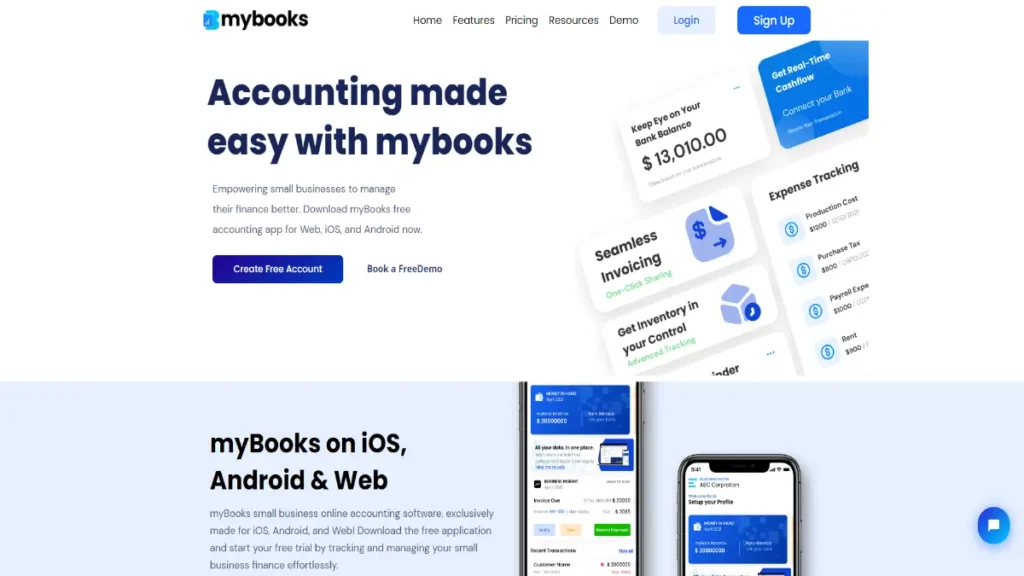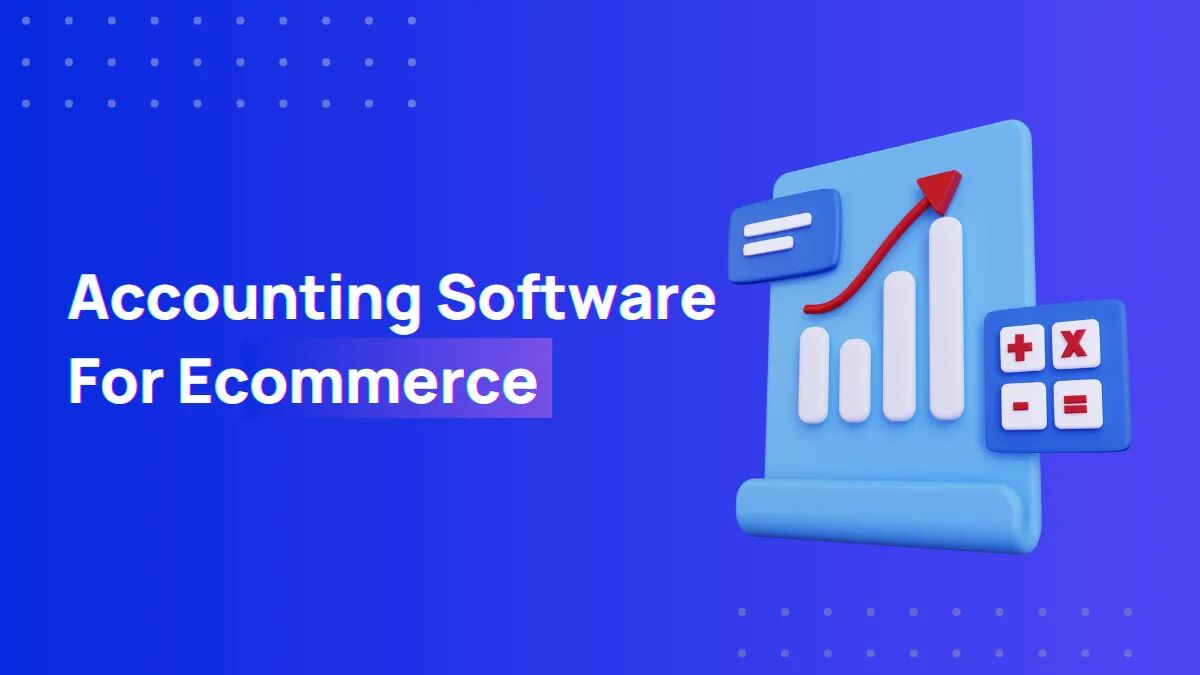When you run an ecommerce business, it’s essential to have a reliable accounting system in place. Accurate bookkeeping ensures that you can monitor your finances, track expenses, and prepare financial reports with ease. Thankfully, there are several accounting tools/software available today that cater specifically to ecommerce businesses.
Table of Contents
List Of top accounting software for ecommerce businesses
- Tally: Tally is one of the most popular accounting software for ecommerce businesses. It is easy to use and offers features like inventory management, payroll processing, GST compliance, and more. Tally also has an online version, which allows you to access your accounts from anywhere.
- Marg: Marg is another well-known accounting tool for ecommerce businesses. It offers features like inventory management, order processing, billing, and more. Marg’s cloud-based version makes it easy to access your accounts, even when you’re on the go.
- Busy: Busy is a comprehensive accounting software that caters to the needs of small and medium-sized ecommerce businesses. It offers features like inventory management, invoicing, GST compliance, and more. Busy also allows you to customize your reports as per your specific requirements.
- Zoho Books: Zoho Books is an excellent accounting tool for small ecommerce businesses. It offers features like invoicing, expense tracking, project management, and more. Zoho Books also has mobile apps, making it easy to manage your accounts while you’re on the go.
- ProfitBooks: ProfitBooks offers a simple and intuitive accounting solution for ecommerce businesses. It offers features like inventory management, invoicing, expense tracking, and more. ProfitBooks also offers a free plan, making it an affordable option for startups and small businesses.
- MyBooks: myBooks is an accounting software that offers features like inventory management, invoicing, expense tracking, and more. It also offers a mobile app, making it easy to manage your accounts while you’re on the go. myBooks also offers a free plan, making it an affordable option for startups and small businesses.
Now, Let’s discuss the features of all the best accounting software for ecommerce.
1. Tally

Features:
- Simplicity and ease of use: Tally is known for its user-friendly interface and simple navigation, making it easy to use even for non-technical users.
- Rigid structure: While this can also be seen as a disadvantage, the rigid structure of Tally software ensures data integrity and reduces the risk of errors or inconsistencies in accounting and inventory management.
- On-the-go access: Tally offers remote access to its software through the Tally Server, allowing users to access their data from anywhere with an internet connection.
- Integration capabilities: Tally integrates with a wide range of third-party applications, such as CRM, payroll, and point-of-sale systems, making it a versatile tool for businesses.
- Advanced reporting: Tally offers advanced reporting capabilities, allowing users to generate customized reports with filters and other parameters.
- Multi-currency support: Tally supports multi-currency transactions and exchange rates, which is beneficial for businesses operating in multiple countries.
2. Marg

Features:
- Multi-lingual support: Marg software supports multiple languages, making it ideal for businesses in countries with diverse linguistic backgrounds.
- Mobile app integration: Marg software can be accessed through a mobile app, allowing users to access their data on the go.
- Cloud-based capabilities: With Marg’s cloud-based capabilities, users can access their data from anywhere with an internet connection, and updates are automatically synced across devices.
- AI-powered chatbot: Marg’s AI-powered chatbot, called “MARG Buddhi,” is designed to answer user queries related to accounting and inventory management.
- Barcode scanning support: Marg software supports barcode scanning, allowing businesses to streamline their inventory management processes and reduce manual errors.
- E-commerce integration: Marg software integrates with popular e-commerce platforms such as Amazon, Flipkart, and Shopify, making it easier for businesses to manage their online sales channels.
3. Busy

Features:
- Advanced inventory management: Busy offers advanced inventory management features such as batch processing, expiry tracking, and stock aging analysis.
- Customization capabilities: Users can customize the software to meet their specific business needs, including customizing reports, vouchers, and fields.
- Multi-currency support: Busy supports multi-currency transactions and exchange rates, making it ideal for businesses operating in multiple countries.
- Voucher approval system: Busy’s voucher approval system allows users to set up a hierarchy of user roles and permissions, ensuring proper authorization and reducing the risk of errors or fraud.
- Barcode scanning support: Busy software supports barcode scanning, allowing businesses to streamline their inventory management processes and reduce manual errors.
- Advanced security features: Busy offers advanced security features such as user access control, backup encryption, and transaction locking to ensure data protection.
4. Zoho

Features:
- Customizable Templates: Zoho Books allows users to customize their invoices, estimates, and other documents with their company logo, colors, and fonts.
- Project Management: Zoho Books has an integrated project management feature that allows you to create, track, and bill time for projects.
- Inventory Management: It also offers robust inventory management features, allowing businesses to track and manage inventory levels across multiple warehouses or locations.
- Client Portal: Zoho Books provides a client portal that allows your clients to view their invoices, estimates, and other financial transactions.
- Multi-Currency Support: Zoho Books supports over 160 currencies and allows you to invoice customers in their preferred currency.
- Bank Integration: It can be integrated with banks and financial institutions, allowing you to automate bank feeds and reconcile transactions quickly.
- Automated Workflows: Zoho Books allows you to set up automated workflows for repetitive tasks such as invoicing, reminders, and payment collections, saving you time and reducing errors.
- Budget Tracking: It also has a budget tracking feature that helps businesses set targets and monitor actual expenses against those targets.
- Collaboration: Zoho Books allows multiple users to collaborate on the same account, making it easy to manage finances within teams or departments.
5. ProfitBooks

Features:
- Project Management: ProfitBooks allows you to manage your projects, track their progress, and bill your clients all within the same system.
- Customer Relationship Management (CRM): With its integrated CRM feature, you can manage customer data, track interactions with customers, and create follow-up tasks.
- Customizable Dashboard: The software’s customizable dashboard provides an overview of important financial information such as revenue, expenses, and cash flow, enabling users to get a quick snapshot of their business finances.
- Bank Integration: ProfitBooks supports bank integration, allowing users to automatically import bank transactions and reconcile them with ease.
- Multi-Currency Support: It also offers multi-currency support, enabling businesses to invoice customers in different currencies.
- User Permissions: ProfitBooks has robust user permission settings, providing added security and control over individual access to sensitive financial data.
- Online Payment Gateway Integration: The software integrates with popular online payment gateways such as PayPal and Stripe, allowing customers to pay invoices directly through the system.
- Purchase Order Processing: ProfitBooks provides a purchase order processing feature, allowing businesses to create and send purchase orders, receive goods, and update inventory on the go.
- Tax Management: The software simplifies tax management by providing a tax module that enables businesses to file GST returns and manage other taxes such as VAT and TDS.
6. myBooks

Features:
- Automated Transaction Categorization: myBooks uses machine learning algorithms to automatically categorize transactions based on the type of expense or income. This reduces the time required for manual entry and categorization of transactions.
- Multi-Currency Support: myBooks supports multiple currencies, allowing businesses to manage their finances in different currencies. It also provides real-time currency conversion rates to ensure accurate financial reporting.
- Inventory Management: myBooks includes inventory management features, enabling businesses to track product levels, sales, and purchase orders.
- Project Management: myBooks allows businesses to track expenses and revenues associated with individual projects. This helps businesses keep track of project profitability and make informed decisions about resource allocation.
- Customizable Invoicing: myBooks offers customizable invoice templates with options to add logos, payment terms, and other details. This helps businesses create professional-looking invoices that are tailored to their specific needs.
- Bank Reconciliation: myBooks automates bank reconciliation, eliminating the need for manual matching of transactions. This saves time and ensures accurate financial reporting.
- Tax Calculation and Filing: myBooks automatically calculates taxes based on tax rules and rates, reducing errors and saving time. It also generates tax reports and assists with tax filing.
Discover the path to e-com success: Explore our comprehensive ecommerce guides.
People Also Ask
What is Accounting Software for Ecommerce, and Why Do I Need It?
Accounting software for ecommerce is a specialized tool designed to streamline financial management for online businesses. It helps you track revenue, expenses, and taxes, and manage your financial transactions efficiently. You need it to maintain accurate records, save time, reduce errors, and gain insights into your ecommerce business’s financial health.
How Does Accounting Software for Ecommerce Help with Inventory Management?
Accounting software for ecommerce often integrates with inventory management features. It allows you to monitor your stock levels, track product sales, and even automate reorder points. This helps prevent overstocking or understocking, optimizing your inventory management and reducing costs.
Can Accounting Software for Ecommerce Handle Multi-currency Transactions?
Yes, many accounting software solutions for ecommerce support multi-currency transactions. This feature is crucial if your ecommerce business deals with international customers or suppliers. It enables you to accurately record and convert foreign currency transactions, simplifying your financial reporting.
Is Cloud-Based or On-Premises Accounting Software Better for Ecommerce Businesses?
Cloud-based accounting software is generally more popular for ecommerce businesses. It offers flexibility, accessibility from anywhere with an internet connection, and automatic updates. On-premises software may be suitable for some, but cloud-based solutions are often preferred for their convenience and scalability.
How Does Accounting Software for Ecommerce Help with Tax Compliance?
Accounting software for ecommerce often includes tax management features. It helps you calculate and track sales tax, VAT, and other taxes relevant to your business. Some software even offers tax filing capabilities or integrates with tax preparation services, making it easier to stay compliant with tax regulations.

Comments are closed.